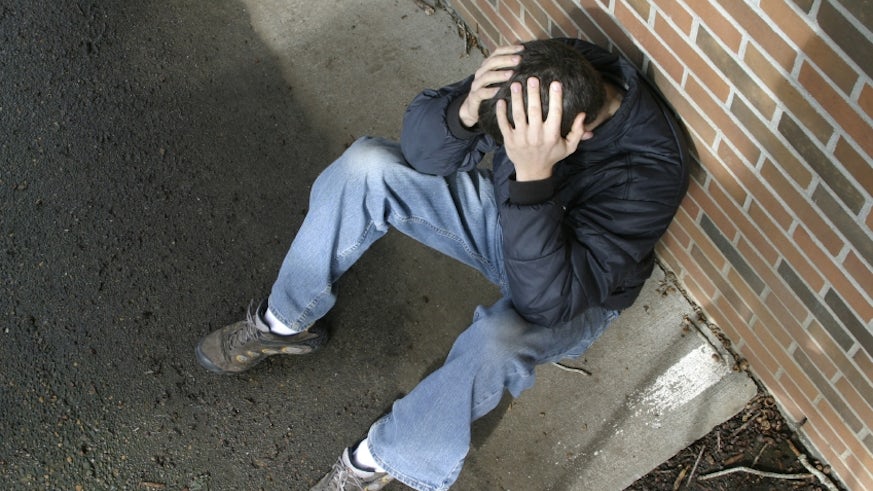New research urges Government to improve services for homeless people
8 January 2015

The UK homelessness charity, Crisis, has warned of a "tragic waste of young lives", as new Cardiff University research reveals that half of all homeless people first become homeless aged under-21, with the majority going through the experience again and again because they don't get the help they need.
The report, conducted for Crisis by Dr Peter Mackie of the School of Planning and Geography, provides the first ever profile of single homeless people across England, Wales and Scotland, showing the reasons people first become homeless and the horrific consequences for their lives. It warns that people who become homeless at a young age often face a vicious cycle that leaves them vulnerable to violence, substance abuse and problems with mental and physical health.
Dr Mackie said: "The 'Nations Apart?' report provides an excellent overview of homeless people's experiences and it worryingly highlights the impacts of failing to prevent homelessness, particularly amongst young people. The report and the work of Crisis received significant attention during the Christmas period but the issues highlighted must remain a priority throughout 2015.
The report calls on Governments in Westminster, Edinburgh and Cardiff to make changes. In the context of Wales, The Welsh Government recently reviewed its homelessness legislation and radical changes are due to commence in spring 2015. However, the forthcoming changes fall short of ensuring all single homeless people have access to accommodation and support. In evaluating this new legislation, the Welsh Government should consider any shortcomings in meeting the needs of single homeless people and further legislative changes should be made where appropriate.
The report identified that on average people first become homeless at just 22, with half (48%) aged under- 21 and one third (34%) aged under-18 when they first become homeless while 60% of homeless people first become homeless after a household dispute, a third of which are violent.
The report also found that:
- 61% of homeless women have experienced violence or abuse from a partner
- Nearly half of all homeless people have had problems with mental health
- Where people had recently gone to their council for help, nearly two thirds received either no advice, only general advice or were referred elsewhere
- 10% of homeless people have never had a permanent home in their adult life
Whilst identifying the shortcomings of homelessness support from local authorities, several key themes emerged under which 9 recommendations have been made for national and local governments.
Dr Mackie said: "Legislation has clearly achieved positive outcomes for single homeless people in Scotland on a scale that is unlikely to be achieved by any other means. It is vitally important that governments in Cardiff, Edinburgh and Westminster seriously consider the failings of services in their respective countries. The report's recommendations set out a clear roadmap to improve these services and as a result the lives of homeless people in the UK."
The full "Nations apart? Experiences of single homeless people across Great Britain" report and its recommendations can be downloaded here.